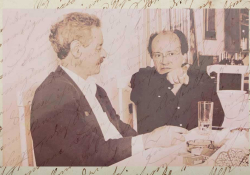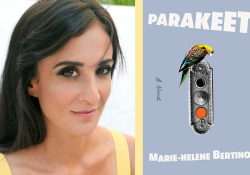The Last Free Space

In this love letter to public libraries, Linda Stack-Nelson concludes that libraries aren’t always about the books—and that’s what makes them indisposable.
I will absolutely be the first person to romanticize libraries. I come from a home with thirty-two bookcases (all stuffed to sagging), a count that does not include the several dozen boxes of books in the attic labeled “work” and “extra.” All these books are courtesy of my parents, both of whom were English majors in their day and in whose footsteps I never hesitated to follow. My childhood dream was of a house with a claw-foot bathtub, stained glass, and (most importantly) an enormous library made of built-in shelves, a sliding ladder, and window seats in every window. As a senior in high school, I began working at the county library near my house, following up on two summers of volunteering with their summer reading program. I was all starry eyes and romantic visions of alphabetizing the classics and discovering gems among the new arrivals. What I found instead was that the life of a library was nothing like my daydreams, but far more important than I could have imagined.
There is no library that is only a library anymore. Modern libraries can’t afford and don’t try to be only a receptacle for free books. They offer classes, book groups, Internet access, resume and tax help, tutoring, and multimedia resources for anyone who might wander in. Librarians are equipped to help with research and give recommendations, remaining Renaissance people by profession. Most libraries have access to interlibrary loans, making the acquisition of nearly any piece of material merely a matter of time. What makes libraries so unique and important, however, is none of the plethora of resources and opportunities for community that they most certainly provide.
Libraries are the last place in every town and city that people can simply exist. Every building one enters today comes with some expectation of spending money. Restaurants require paying for service. Shops require the intention of purchasing something. Houses require rent. Anyone who has lived near the poverty line, whether or not they have actually been homeless, has felt the threatening pressure toward expenditure that permeates the public spaces of modern Western culture. Even a free restroom is becoming difficult to find, especially as growing cities experience ever-increasing space constraints.
In a library, no one is asked to pay anything simply to sit. For those with few resources besides time, this is a godsend. Libraries are unofficial playgrounds for low-income families on rainy days, homeless shelters in cold months, reprieves from broken homes for grade-school-age children. They are the last bastions of quiet and calm where nothing is asked of one but to exist. Many arguments have been made about how the library is an outdated institution offering outdated services—that in the twenty-first-century how-to books on building sheds and daily newspaper copies are obsolete and the funding used for libraries ought to be reallocated to other programs. I can only assume that those who make such arguments are people who have always been comfortable with the expenditures it takes to move through the world, whose presence has never been questioned. For those people, libraries can be about books. But not everyone has the luxury of seeing past the space.
Libraries, as they exist in the twenty-first century, are the only remaining public domain. In a library, anyone of any walk of life can come and go as they choose, and so long as they remain respectful of the space they can remain as long as they wish. Libraries welcome everyone, offering a place to be and easily accessible resources to the most vulnerable populations, whether in downtown Chicago or small-town Oklahoma. My childhood romantic vision of the library is still close to my heart, but the very real work that public libraries do today is so much more critical than a leather-bound edition of Homer or a graphic novel fresh off the press. Those are the things the library gives me; but libraries are for everyone.
University of Oklahoma





